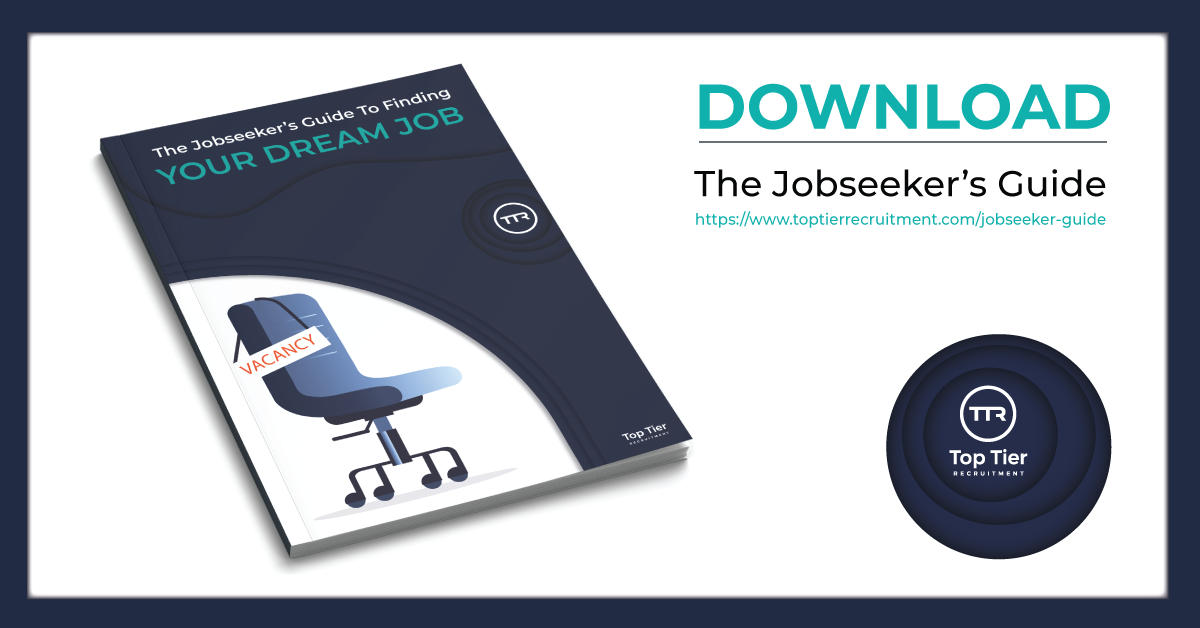How To Hand In Your Resignation

Congratulations! You got the job!
Now, let's look at how to hand in your resignation in the right way.
But first . . .
While You're Here: Get The Jobseeker’s Guide To Finding Your Dream Job
Want some extra help to land the job of your dreams? 
The 'Jobseeker’s Guide To Finding Your Dream Job In Ireland's Financial Services & FinTech Industries' will help you put a plan in place to secure your dream job. You’ll know how to prepare well, how to ace those interviews, and how to handle the next stage.
You can download the free Jobseeker's Guide now.
Podcast Discussion
Ok, let's get into the discussion . . .
How To Hand In Your Resignation Properly
Laura: Today we're going to talk about handing in your notice. You've gone through the full interview process. You've been given the offer, you've accepted it, congratulations on your new job. Paul, what principles or what guide would you give somebody for leaving their current employer?
Paul: Yes, I think there are a few things to keep in mind. You don't want to burn your bridges. I think you want to handle this as diplomatically as you can. And I think really important that it's not, that you're leaving for a negative reason, but that you're moving to something that's positive. And so yes, it's not about leaving somewhere. It's that I really want this role. It's the right role for me. So, just keep those things in mind when you're thinking about handing in your notice.
Laura: Great. And just on the practical advice side, how should somebody go about it? What should they say? How should they do it? Should they email? Should they confront their hiring manager face-to-face? How exactly should they do it?
Paul: Confront is probably a bit of a harsh word.
Laura: Yes, probably a little bit harsh.
Paul: Certainly shouldn't be a confrontation. No. So, my advice to people would always be to do it face-to-face where possible. I think it can be a tricky conversation and one that most people don't enjoy. But, it's one that has to be done. And I think doing things the right way will leave you in a better place, leave your reputation as well in a better place once you do leave. So, certainly face-to-face would be the best way to do it.
Paul: And I would caveat that with if you've made the decision to leave and you're happy with your offer and your new role. While obviously you want to respect your current employer, the employer you're potentially leaving, you do need to bear in mind that you are leaving for a new employer. So, if it's the case, particularly over summer or Christmas or holiday grades, where your direct manager is away for a week or two weeks, extending notice periods by an extra few weeks can sometimes be seen pretty badly by your new employer.
Paul: And so, if your hiring manager isn't there, I think it is best to try to find another way to do it. Either call them if they're available to speak. Or if they're not available to speak, maybe it's a case of speaking with their manager or someone else in the business or someone in HR. Because, getting your notice handed in once everything else is done, the contracts are signed, et cetera, and in a timely manner is really, really important. I think if it does need to be emailed for whatever reason, just bear, try to set your mind around, don't burn your bridges. And make sure it's not felt that it's personal or anything else. And that it's a positive step for you and your career as opposed to leaving for a negative reason.
Laura: Yes, absolutely. In terms of burning your bridges, particularly in Ireland, Dublin is really small. It's a village, isn't it?
Paul: Yes. And I think the other thing is, we did an episode on counter offers. This is obviously where counter offers come up. So I refer you to that episode for sure. But in all of my years in recruitment, I've never really seen a counter offer work out longterm. And so I'm not going to dwell on that at all. But, I think if you're going to have that chat with your manager and go into it with the mindset of "I am accepting this offer and I'm going somewhere else." And your mind is made up. Very often the first thing back is going to be, "Oh, can you leave with me for an hour or two or until tomorrow. Really want you to say et cetera." But, I do think you need to be firm. And once that decision is made, do your very best to stick to it will definitely be my strong advice.
Laura: Yes, exactly. Most of it, nine times out of 10 you'd be just offered a monetary increase in your salary. And if you want to leave somewhere, it's most frequently not just down to salary.
Paul: No, definitely not. And, we've talked about this in earlier episodes, and it comes back to prep and why are you leaving and what are you looking for your next role. If all that stuff is aligning then counter offers should never really be an issue at all. So yes, just be careful with that one.

Laura: Excellent. So, apart from buying yourself a whole new wardrobe for your new role or your new company, what should you do during your notice period?
Paul: I think notice period is really important. Can't remember, I remember one manager I worked for remarked before I left. Not beating myself, well I kind of am beating myself up here. But, she said to me, "Thanks a million for all your hard work during your notice period." And it just made no sense to me at all. It's just, this is what you should do. But, it opened my eyes to a lot of people when they do hand in a notice period can't take the foot off the gas, and it's really tempting because you're kind of one foot out the door or whatever. But remember as you said, Ireland's a small place. It's your reputation at the end of the day.
Paul: So, make sure everything is really well organized. Do you need to create a handover document so everything is seamless? Do you offer to and answer any questions after you've left if there is anything that comes up? I think those things are really, really important. But yes, the main thing is do your role to the best of your ability. It can be harder when you have that kind of one foot out the door. But, it is your reputation longer term at the end of the day. So, just be really careful around that.
Laura: Sure. And when you're leaving, would you advise people to send a farewell email or going for a few pints with their current colleagues?
Paul: Yes, absolutely. Why not? Go for pints. Any excuse. No. But, yes absolutely. You never know where people are going to end up, and you're probably going to be a gap in the team that needs to be filled. And it may not be filled by the time you've left and everything else. So, I think leaving with your reputation intact and all of that stuff is really important. But, there is a social aspect to it. Clearly, if you've done a reasonably long stint in the company, I'm sure you're going to absolutely have a relationship and such built over time. So, 100%.
Laura: Great. Just your key takeaways, Paul.
Paul: Yes, I think just kind of recapping everything we said, don't burn your bridges. Ireland is a small place in particular. Make sure your manager and the company don't think it's about them. It's more about you.
Laura: It's not you, it's me.
Paul: Yes, exactly. But, that it's about your kind of positive progression in terms of your career, et cetera. I would absolutely if you listen to this episode and you're thinking about it starting the job search, have a listen to the rest of the stuff that we've done around starting your job search and how to know when to leave and start looking and all of that. And just make sure everything is aligned and that the role you're accepting is the right role, and you're leaving for the right reasons, et cetera. Do things the right way in terms of face-to-face if you can, but remember that your new employer is going to be depending on you to get in as quick as possible I think.
Paul: What else did we talk about? Yes, during your notice period, get organized. Do that hand over a document, offer support if you think it's needed if it's something that you're going to be able to, if something that you're going to be able to commit to. And then do your best to relax into it and look forward to your new role at the same time. Because it's, we've talked about this all the way through. Interviews are competitive. Job applications are competitive. If you've done all the hard work, you've negotiated your salary, it is something to be really happy about it. So, well done.
Laura: Absolutely. Well done on your new job.
Need Help?
If you want any information or are interested in one of our roles in the Fintech and financial services industry, get in touch with us at Top Tier Recruitment.
Check out our podcast and, if there's ever anything that you would like discussed, feel free to get in touch, info@ttrmail.com.
If you need further help with your career and interested to learn more about career coaching, visit Possible Coaching today to arrange a introductory call!